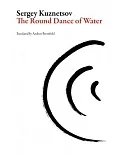We read to explore the unknown, but also to recognize ourselves in others. Arno Geiger's We Are Doing Fine offers both pleasures. This fourth novel (winner of the German Book Prize 2005) of the
1968, born Austrian writer highlights events in the lives of three generations of a Viennese family as viewed through the eyes of Philipp, who has inherited the villa of his recently deceased
grandmother. While cleaning, no gutting, the house and ridding it of most reminders of its former occupants, the grandson is forced to think about his family more than is to his liking.
In a brilliantly sparse and precise language, Geiger mixes crucial incidents of Austrian history with both everyday and tragic occurrences in the family's private lives. His ear for and empathy
with the characters, particularly the women in the story, is exceptional. A dysfunctional family emerges and is even more poignant because the specific Austrian background only makes the
universal in such families more apparent. Philipp is following family tradition when he tries to make clear to his married girlfriend that he neither knows much nor wants to find out more about
his family. This is the crux of We Are Doing Fine and the reason why it has more than regional appeal. Austrians have sometimes been accused of having a selective memory, of an aptitude to
gloss over uncomfortable truths, and of a penchant for appearances. Geiger's characters display all of these characteristics to various degrees, but one cannot help but notice that such
shortcomings are by now shared by most of society as we know it. Maybe one only can make it through the day when one surfs the surface and when one uses a pat response to all inquiries about
one's general state of being: "We are doing fine".





















